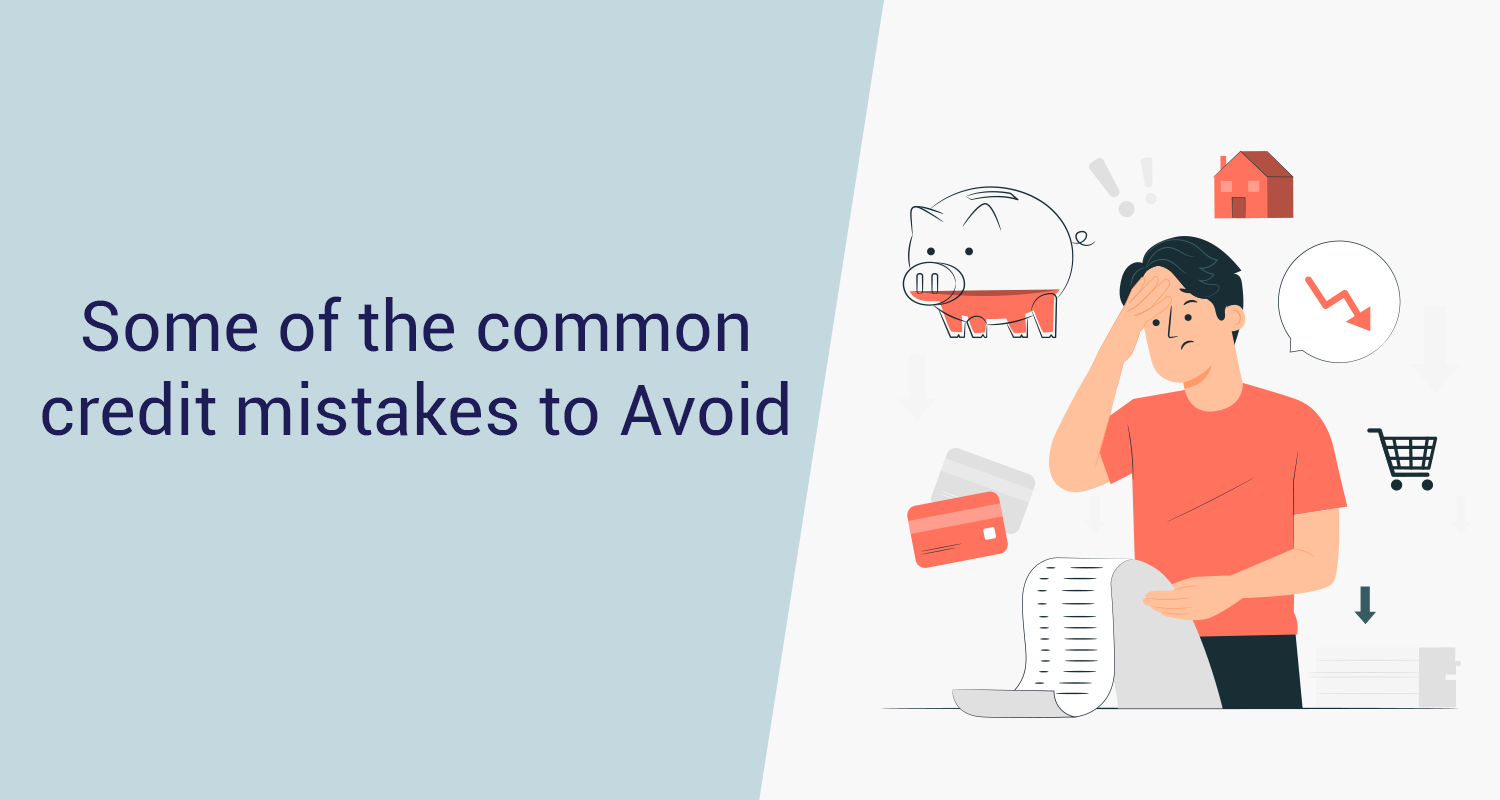What Is Credit Review And How Does It Work?

To reduce the possibility of losing money on a bad debt, lenders carefully examine each application to ensure all the documents and claims by the borrowers are in place and true.
What Is a Credit Review?
Prior to approving the loan application, the lender, be it a bank or a non-banking finance company, thoroughly examines the applicant’s financial situation and ability to repay the loan. This process is called a credit review.
What Is the Purpose of a Credit Review?
Lenders primarily conduct a credit review for large-ticket loans such as home loans, car loans, and business loans. In order to demonstrate one’s financial stability during the application process, one needs to provide many personal and financial documents, including most recent tax returns, proof of income, account and credit card transactions, records of any new debt, and any foreclosure evidence. This data is examined by the lender and is used to determine whether or not they should extend the loan to the applicant.
The lender also conducts a credit review on a regular basis to update its analysis, to ensure that the loan is safe and the borrower is still in a position to repay it.
Any creditor including the bank, a financial service institution, a credit bureau, or a settlement company can conduct credit reviews.
Why Should You Check Your Credit Report Regularly?
It is crucial that you check your credit report on a regular basis as it helps you keep your financial health in check, including your credit history. It also brings to your attention any errors or incomplete information. It also helps the lenders by providing insights into your creditworthiness
Sapna aapka. Business Loan Humara.
Apply NowWhat Type of Information Does a Credit Review Collect?
Credit Report
A CIBIL credit information report keeps a record of one’s credit history including monthly credit card payments and loan-related EMI payments. It contains different sections with data such as personal information, accounts held by the potential borrower, and inquiries made by the borrower seeking different types of credit.Employment
Whether one is a salaried employee or a business owner, the borrower’s employment status affects credit decisions.Capital
For a business loan, the concept of capital holds great importance. The capital amount represents both the cash balance and the physical asset. The lender also assesses how liquid the business is.Debt-To-Income Ratio
This ratio shows how much of the borrower’s monthly income goes towards paying off debt. The ratio is derived by dividing one’s monthly debt payments by the monthly gross income.Collateral
In the case of a secured loan, one offers up an asset something as collateral such as land, gold, or property. Secured loans and their respective collaterals are also a part of the credit review. In case of failure of repayment of the loan, the lender can seize and take over the collateral.Types Of Credit Review
During The Application Process:
When one applies for a loan, the lender conducts a credit review to evaluate the loan proposal.Periodic Review:
The lender may conduct periodic credit reviews during the repayment term to ensure the borrower is still in a position to repay the loan . In case of any issues in the review in the middle of the term, the borrower and lender may work out new terms for the loan.Self-Review:
This is conducted by the applicant itself, wherein they approach the credit bureau for their own credit review.Does Credit Review Affect Credit Score?
Lenders access the applicant’s credit report from a credit bureau while conducting a credit review, in a process known as a credit inquiry.
When the lender seeks access to a borrower’s report it is known as a hard inquiry. However, a self-inquiry does not count as a hard inquiry. But, it is advisable not to make too many self-inquiries.
Although a hard query does not lower one’s credit score, a string of hard inquiries may have an adverse impact.
Difference Between A Credit Review And A Credit Report?
Credit report forms a part of the credit review, as the report on its own does not have enough information about the borrower’s level of creditworthiness.
A credit review examines the applicant’s current financial condition, as opposed to a credit report, which is a record of one’s loan repayment and credit management history.
Also, the credit review includes other details such as the borrower’s income, debt-to-income ratio, capital, stability of employment and income, collateral, etc.
What are the credit review companies?
The credit review companies that are operational in India are Transunion CIBIL, Equifax, Experian and CRIF Highmark. Among these, Transunion CIBIL is the most widely used bureau by majority of Indian lenders as well as individuals
Conclusion
Lenders like IIFL Finance place a lot of importance on their consumers' financial records, current financial situation, and credit histories, and therefore, for larger loans, they conduct credit reviews.
A credit review help lenders to measure the creditworthiness of a potential borrower and determine if he has the ability to repay the loan.
As long as a client has a good credit review including a strong credit score history and no history of missed payments or loan defaults, a reputed lender can provide the most affordable interest rates to them.
Leading NBFCs like IIFL Finance offer easy loan approvals with a simple procedure. Additionally, IIFL offers affordable interest rates and various repayment plans that make it simpler for borrowers to pay off their debts.
FAQs
Q1. How often should I review my credit report?Ans. It is advisable to review your credit report at least once a year. But in case you are actively managing your credit buying or selling or maybe you intend to make a major purchase, then, in that case, checking your credit report frequently can work towards your advantage.
Q2. Will checking my credit report affect my credit score?Ans. No, checking your own credit report will not negatively impact your credit score. It is often referred to as a "soft inquiry" and in no way it affects your creditworthiness.
Q3. What information is included in a credit review?Ans. A credit report contains a detailed history of your credit accounts, including credit cards, loans, and other lines of credit. It also contains information regarding your account balances, payment history, late payments, collections, and public records (like bankruptcies or judgments).
Q4. How long does negative information stay on my credit report?Ans. Generally, most negative information, such as late payments or collections, can stay on your credit report for up to seven years. However, bankruptcies can remain on your report for up to 10 years.
Sapna aapka. Business Loan Humara.
Apply NowDisclaimer: The information contained in this post is for general information purposes only. IIFL Finance Limited (including its associates and affiliates) ("the Company") assumes no liability or responsibility for any errors or omissions in the contents of this post and under no circumstances shall the Company be liable for any damage, loss, injury or disappointment etc. suffered by any reader. All information in this post is provided "as is", with no guarantee of completeness, accuracy, timeliness or of the results etc. obtained from the use of this information, and without warranty of any kind, express or implied, including, but not limited to warranties of performance, merchantability and fitness for a particular purpose. Given the changing nature of laws, rules and regulations, there may be delays, omissions or inaccuracies in the information contained in this post. The information on this post is provided with the understanding that the Company is not herein engaged in rendering legal, accounting, tax, or other professional advice and services. As such, it should not be used as a substitute for consultation with professional accounting, tax, legal or other competent advisers. This post may contain views and opinions which are those of the authors and do not necessarily reflect the official policy or position of any other agency or organization. This post may also contain links to external websites that are not provided or maintained by or in any way affiliated with the Company and the Company does not guarantee the accuracy, relevance, timeliness, or completeness of any information on these external websites. Any/ all (Gold/ Personal/ Business) loan product specifications and information that maybe stated in this post are subject to change from time to time, readers are advised to reach out to the Company for current specifications of the said (Gold/ Personal/ Business) loan.



